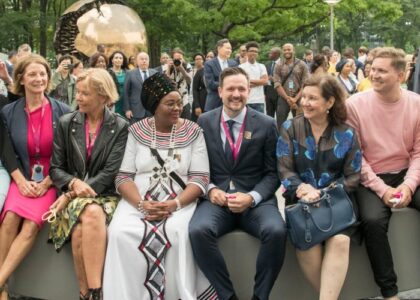The digital identity and wellbeing of the girl child is a principal element in the socio-economic development of Nigeria, especially in the post-Covid Era.
As the world commemorates the girl child’s day, gearing towards digital inclusion for all girls, it is quite unfortunate to note that inequality issues in education, leadership, business, gender-based violence, and poverty are still making the headlines of our stories as these affect the girl child and her rights to learn and contribute to social and economic development.
Digital Generation, our Generation
One can easily belittle the meaning and scope of this year’s theme, however, it is only factual that we have emersed ourselves too deeply into the digital space such that 8 in 10 of our daily activities has a link or is solely connected to the use of the internet or digital media.
Having this fact established, it is noteworthy to point out the cogency of acquiring digital literacy especially by girls who are mostly victims of inequality and discrimination.
In a time where everything is done through digital platforms – the internet and social media, there is a dire need for the girl child to have access to information and communication technology, guidance and mentorship must also be provided on how she can effectively utilize digital learning and personal development tools to overcome the negative effects of its use.
Challenges to Girl Child Education in Nigeria
Long-held ideological beliefs and notions about the unimportance of girl education still exist among some parents living in unexposed communities, these notions are a violation of the girl’s right to education and pursuit of her dreams. This does not resonate with the changing realities of a fast-growing and digital world and must be corrected seeing that the girl child like every other male child holds great potential and serve as the core wall of nation-building.
Globally, 1 in every 3 women or girls have been harassed, coerced, forced physically, emotionally, or sexually into early marriage and still get blamed for being the victim while perpetrators of these acts go unpunished. According to a 2020 publication developed by the United Nations International Children’s Emergency Fund (UNICEF) and The United Nations Population Fund (UNFPA), “an estimated 22 million Child brides live in Nigeria, which accounts for 40% of all child brides in Sub-Saharan Africa, Meaning that 4 out of 10 girls and young women – nearly 60 million were married before the age of 18”.
This is a sad reality that today such a high percentage of girls are still being abused and denied their basic rights for education and access to digital resources among many other troubling, Challenges faced by the girl child.
Moving forward
As the most populated country in West Africa we must create gender-equitable policies so all girls can have access to learn and study uninterruptedly. To decrease the number of child Brides we must more than double every iota of the progress we have made in enrolling girls to school seeing that girls are less likely to be given for marriage or give birth when pursuing an education.
we must also invest in our school by building proper infrastructure making our classrooms conducive for learning and also invest in digital resources.
we must train teachers on digital literacy as well so that they can be able to impart the girl child with the most needed and timely digital skills.
As an initiative committed to empowerment we are ever ready to facilitate the achievement of total wellbeing for rural women and schoolgirls in our coverage area by providing them with digital skills and capacity development, education, mentorship, and basic Healthcare support.
having so much positivity and better hope for the girl child in this digital generation we join stakeholders and individuals to commemorate the United Nations international day of the girl child 2021.





